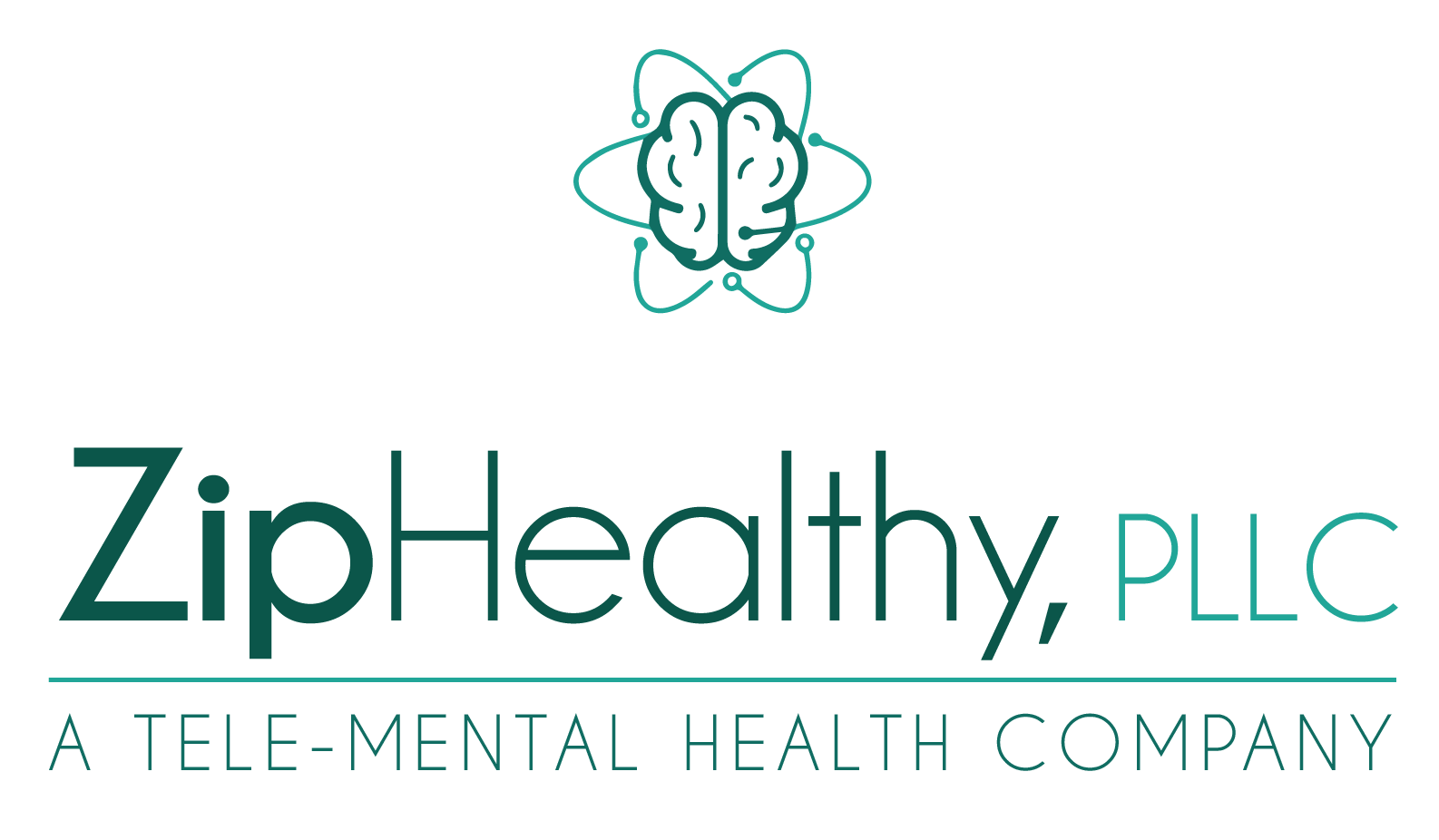Welcome to Your Elite, Personalized Therapy Experience
Personalized Support for Your Mental Health and Well-being
At ZipHealthy, we understand that everyone faces challenges at different points in their lives. Our evidence-based individual therapy services provide measurable support, tailored to help you navigate life's complexities, address specific concerns including substance abuse, and foster resilience in a supportive, judgment-free environment.
Ready to Begin Your Healing Journey?
Connect with our team to schedule your complimentary consultation.
Your information is protected by our Privacy Policy

What is Individual Therapy?
Individual therapy, also known as counseling or psychotherapy, is a collaborative process between you and a trained therapist. It provides a confidential and supportive environment where you can explore your feelings, thoughts, and behaviors, and work towards your personal goals.
During sessions, you'll work with a mental health professional to address specific concerns, develop coping strategies, and gain insights into patterns that may be affecting your well-being. Our therapists create a safe, non-judgmental space where you can express yourself freely and work toward positive change.
Understanding Mental Health Professionals
At ZipHealthy, we believe in helping our clients make informed decisions about their care. Here's a comparison of different mental health professionals to help you understand their roles and expertise:
| Professional | Education | Focus | Services | Can Prescribe Medication |
|---|---|---|---|---|
| Licensed Certified Social Worker (LCSW) | Master's degree in social work + clinical training | Assessment, diagnosis, and treatment of mental health conditions using evidence-based therapies, while considering social and environmental factors affecting mental health | Individual, group, and family therapy, counseling, case management, advocacy, research | No |
| Psychologist (PhD/PsyD) | Doctoral degree in psychology | Assessment, diagnosis, and treatment of mental health conditions using evidence-based therapies | Psychological testing, therapy, research | No (except in some states with additional training) |
| Licensed Professional Counselor (LPC) | Master's degree in counseling | Personal development, career, relationships, and mental health concerns | Individual, group, and family therapy, counseling | No |
| Psychiatrist (MD/DO) | Medical degree + psychiatric residency | Diagnosis and treatment of mental disorders with a medical perspective | Medication management, therapy (in some cases) | Yes |
| Psychiatric Nurse Practitioner (PMHNP) | Master's or doctoral degree in nursing + psychiatric specialty | Holistic approach to mental health care | Medication management, therapy | Yes |
* Note: Scope of practice for mental health professionals differs by jurisdiction. This chart provides general information about differences between provider types. Please consult local regulations for specific details.
At ZipHealthy, our team includes various types of licensed professionals with expertise in different therapeutic approaches and specialties.
Our Therapy Process
We follow a structured approach designed to provide the best possible care
Bio-Psycho-Social Assessment
Our comprehensive assessment explores psychological, biological, and social factors to understand your unique situation.
Collaborative Goal Setting
We identify meaningful, measurable goals that align with your values and aspirations for growth.
Treatment Planning
We create a tailored therapeutic approach using evidence-based methods for your needs.
Ongoing Therapeutic Work
Regular sessions provide a safe space to explore concerns and work toward your goals.
Progress Monitoring
We regularly assess your progress, celebrating successes and refining our approach as needed.
Continued Growth
When you've achieved your goals, we provide resources for maintaining progress and managing future challenges.
Your Journey Begins With a Conversation
Take the first step toward transformative change with a confidential initial consultation
Schedule Your ConsultationOur Therapeutic Approach
Evidence-based methodologies tailored to your unique needs
Cognitive Approaches
Cognitive Behavioral Therapy
A practical, goal-oriented approach that helps you identify and change negative thought patterns and behaviors affecting your well-being. CBT equips you with concrete skills to overcome challenges and improve quality of life.
Cognitive Therapy
Focuses on changing dysfunctional thinking patterns that lead to unhelpful emotions. By identifying core beliefs and automatic thoughts, cognitive therapy helps you develop more balanced perspectives and improved emotional responses.
Cognitive Processing Therapy
A specialized therapy particularly effective for trauma and PTSD that helps you process traumatic experiences by challenging and modifying unhelpful beliefs related to the trauma.
Rational CBT
Combines rational emotive principles with cognitive behavioral techniques to help you identify irrational beliefs and replace them with more adaptive thinking patterns, enhancing emotional regulation and well-being.
Behavioral Approaches
Behavioral Therapy
Focuses on learning's role in developing behaviors through evidence-based techniques like systematic desensitization, reinforcement strategies, and conditioning. This approach is effective for addressing specific behavioral issues and phobias without necessarily focusing on underlying thoughts.
Behavioral Activation
A structured approach that helps overcome depression and anxiety by systematically increasing participation in meaningful activities. This therapy helps break the cycle of avoidance and withdrawal by reconnecting you with sources of positive reinforcement in your environment.
Religious & Spiritual Approaches
Religiously-Integrated CBT
Combines evidence-based cognitive behavioral techniques with religious and spiritual concepts and practices. This approach respects and incorporates your faith tradition while helping you address mental health challenges through both psychological and spiritual frameworks.
Mindfulness Approaches
Mindfulness-Based Approaches
Incorporates meditation and awareness techniques to enhance your presence in the moment, reduce stress, and develop healthier emotional responses to life's challenges. Mindfulness practices can help you recognize thought patterns without judgment and improve your overall well-being.
Dialectical Behavior Therapy
Combines cognitive techniques with mindfulness to help manage intense emotions and improve relationships. DBT focuses on four key skill areas: mindfulness, distress tolerance, emotion regulation, and interpersonal effectiveness, providing practical tools for emotional and behavioral management.
Acceptance & Commitment Therapy
Focuses on accepting difficult feelings while committing to values-based actions. ACT helps you develop psychological flexibility by acknowledging your thoughts and feelings without unnecessary struggle, and guiding you to make choices based on your core values rather than emotional reactions.
Humanistic & Person-Centered
Humanistic Therapy
Emphasizes your inherent capacity to make rational choices and develop to your maximum potential through self-determination. This approach focuses on personal growth, free will, and the innate drive toward self-actualization, helping you explore your unique experiences and perspectives.
Person-Centered Therapy
Helps clients achieve meaningful change through a therapeutic relationship characterized by empathy, genuineness, and unconditional positive regard. This approach creates a supportive environment where you can explore your feelings and experiences without judgment, facilitating natural growth and healing.
Psychodynamic Approaches
Psychodynamic Therapy
Explores how unconscious patterns and past experiences influence your current behaviors and relationships. This approach helps you gain deeper self-awareness by examining recurring patterns, understanding the influence of early life experiences, and developing more effective ways to meet your emotional needs.
Psychoanalytic Approach
Discovers unconscious meanings and motivations of problematic behaviors through a deep therapeutic relationship. This in-depth approach examines how your unconscious mind influences your thoughts, feelings, and behaviors, often tracing patterns back to childhood experiences to facilitate lasting psychological change.
Family & Interpersonal Approaches
Family Therapy
Addresses family patterns and dynamics that contribute to mental health concerns. This therapeutic approach views problems within the context of the family system, helping improve communication, resolve conflicts, and create healthier interaction patterns to strengthen relationships among family members.
Interpersonal Therapy
Focuses on improving interpersonal relationships and social functioning. This approach addresses how your relationships affect your mood and mental health, helping you develop more effective communication skills, resolve relationship conflicts, and build stronger social support networks.
Solution-Focused Brief Therapy
Concentrates on finding solutions in the present and exploring hope for the future rather than dwelling on past problems. This goal-oriented therapy helps you identify what you want to achieve and builds on your existing strengths and resources to create positive change in a relatively short timeframe.
Specialized Therapies
EMDR
Eye Movement Desensitization and Reprocessing is an evidence-based therapy designed to help you process traumatic memories and disturbing experiences. Through bilateral stimulation (typically eye movements), EMDR helps your brain reprocess traumatic memories so they no longer trigger intense emotional responses.
Art Therapy
Uses creative expression and artistic techniques to explore emotions and process difficult experiences. Art therapy provides a nonverbal outlet for expressing feelings that may be hard to articulate, helping you gain insights, reduce stress, and work through emotional conflicts through the creative process.
Play Therapy
Uses toys, blocks, dolls, puppets, drawings, and games to help children recognize, identify, and verbalize feelings. Play therapy helps children express and manage emotions, develop problem-solving skills, modify behavior, and learn new and more adaptive ways of relating to others.
Child-Centered Therapy
Creates a supportive environment where children can express themselves freely and without judgment. This non-directive approach allows children to take the lead in their therapeutic process, building trust and confidence while the therapist provides acceptance, empathy, and reflection to facilitate growth and healing.
Narrative Therapy
Helps individuals rewrite their personal narratives to create more empowering stories. This approach separates people from their problems, viewing problems as external rather than inherent to identity. By examining dominant stories that shape your life and exploring alternative narratives, you can construct more positive and meaningful interpretations of your experiences.
Counseling
A short-term, solution-focused approach that helps you navigate specific life challenges. Counseling offers guidance, support, and practical strategies for addressing immediate concerns or difficult transitions, emphasizing personal growth, self-awareness, and developing coping skills for managing life's challenges effectively.
Gestalt Therapy
Emphasizes personal responsibility, focusing on present moment experience and heightened awareness. Gestalt therapy helps you focus on the here and now rather than the past or future, encouraging integration of fragmented parts of yourself for greater wholeness. Through experiential techniques, you gain deeper understanding of how you relate to yourself and others.
Substance Abuse Treatment
Our evidence-based substance abuse treatment program combines cognitive-behavioral approaches, motivational enhancement, and relapse prevention strategies. Treatment includes thorough assessment, personalized care planning, and ongoing support in a judgment-free environment.


